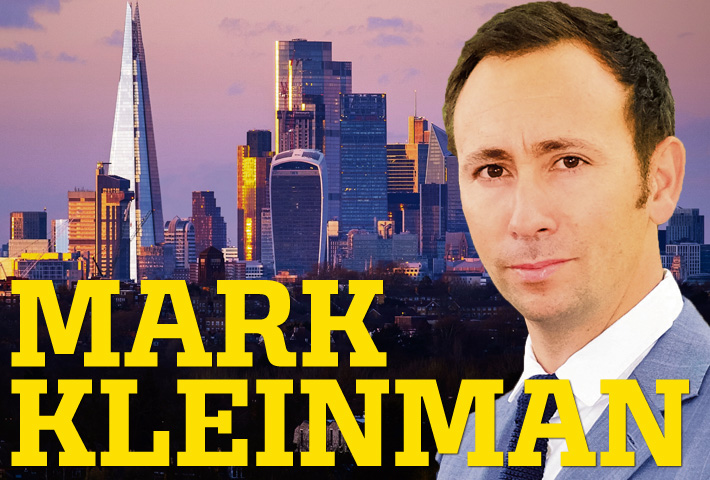Mark Kleinman: The CBI’s arrogance has been breathtaking

Needs must, I suppose. Future dictionary editions may come to define ‘desperation’ as ‘a business lobby group’s reaction to a crisis largely of its own making’.
The CBI, Britain’s self-styled “voice of business”, has certainly failed to be the exemplar of effective crisis management. At every turn, its response to the allegations about the conduct of Tony Danker, its former director-general, and other yet-to-be-identified managers has been found wanting.
First, its initial decision that an internal inquiry into Danker had found insufficient evidence to take the matter further is impossible to correlate with its brutal dismissal of him immediately after the Easter break.
Second, the decision to bring Rain Newton-Smith, its former chief economist and the executive responsible for diversity and inclusion back as Danker’s replacement just weeks after she left for a job at Barclays.
Third, the bone-headed decision by its media advisers to grant an interview with its president, Brian McBride, to a couple of media outlets when he should have been saturating the airwaves with fulsome apologies to the employees who have alleged such serious mistreatment.
That’s not even mentioning the foolhardy choice of appointing an existing board member – Jill Ader, of the headhunter Egon Zehnder – to oversee a review of its “culture, governance and processes”. Even in the space of a four-day weekend, it should have been obvious to McBride that this work would need to be carried out by someone independent of the CBI.
The arrogance of the organisation has been breathtaking, even after a period when it should have been humbled by the difficult – and at times toxic – relationship it has endured with the government over Brexit.
That’s why it must now go much further. Instead of relying on insiders, it should appoint a heavyweight figure straddling the business and political arenas to conduct a wider review of the CBI’s operations, its mandate and its performance.
The CBI must also re-evaluate the tone it projects throughout the organisation – its arrogance has become predictably hubristic, and it should reflect upon why so many of its members have been so fast out of the traps to administer public admonitions.
To show some contrition, it should also announce that it is waiving members’ subscription fees, or that it will reduce them to take account of an interregnum during which by virtue of its exclusion from Whitehall it cannot possibly be ‘the voice of business’.
As if to demonstrate that, today, the other members of the so-called B5 – the Institute of Directors, the British Chambers of Commerce, the Federation of Small Businesses and Make UK – will meet Kemi Badenoch, the business and trade secretary for the first time since the CBI crisis erupted.
The B5 has suddenly become the B4. To reverse that, McBride will need to stage a resurrection worthy of the timing of its Easter weekend implosion.
Schroders pay goes green
Nothing like practising what you preach. Asset management groups are frequently guilty of committing the cardinal sin of lecturing others about boardroom pay while flouting common sense and good governance themselves, so hats off to Schroders for putting its money where its mouth is. According to the fund management behemoth’s annual report, it is adding an ESG-connected financial measure into the performance-related elements of its executive pay policy.
“Certain shareholders fed back [to the company] that they considered our approach to measuring EPS versus a composite index as opaque,” Schroders said. “We are therefore proposing a move to measuring EPS performance against annualised growth targets, providing a clear and transparent measurement approach which is aligned to market norms. This also ensures a focus on delivering absolute returns to shareholders, even in volatile markets.”
That will allow Schroders to say that the often-woolly integration of ESG into pay policies has been addressed. Given its influence as an institutional shareholder in the UK and beyond, companies should expect to be pressed to adopt a similar approach in future.
Ping-pong with Ping An will go on a while
This could take a while. HSBC’s response yesterday to calls from Ping An, its biggest shareholder, for it to break itself was emphatic and robust. Acceding to Ping An’s demands, the bank said, would be damaging to customers, shareholders and the company itself.
“Structural reforms of HSBC’s Asia Pacific businesses suggested by Ping An would significantly dilute the international business model upon which HSBC’s strategy is based,” HSBC said.
“This would result in a material erosion of earnings, returns, dividends and shareholder value, and a disruption to our unique global customer service proposition.”
Ping An’s anger at the cancellation of its dividend during the COVID-19 crisis clearly runs deep. It believes a separation of the group’s Asian operations would deliver material benefits, but has so far failed to explain how.
Still, Mark Tucker, HSBC’s chairman, will be well aware from his knowledge of the region that Ping An will not be taking its campaign anywhere, regardless of its success at persuading other shareholders to back it at next month’s annual meeting.
